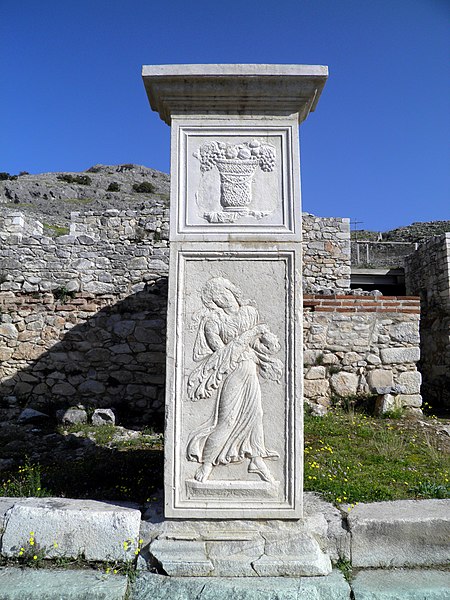Philippi was a major Greek city northwest of the nearby island, Thasos. Its original name was Crenides after its establishment by Thasian colonists in 360/359 BC. The city was renamed by Philip II of Macedon in 356 BC and abandoned in the 14th century after the Ottoman conquest. The present village of Filippoi is located near the ruins of the ancient city and is part of the region of East Macedonia and Thrace in Kavala, Greece. The archaeological site was classified as a UNESCO World Heritage Site in 2016 because of its exceptional Roman architecture, its urban layout as a smaller reflection of Rome itself, and its importance in early Christianity.
Ruins of the centre of the city. The forum in the foreground, the market and the Basilica in the background.
The ancient theatre
West parodos of the theatre
Relief decorations by Philip II (4th century BC)
Philip II of Macedon was the king (basileus) of the ancient kingdom of Macedonia from 359 BC until his death in 336 BC. He was a member of the Argead dynasty, founders of the ancient kingdom, and the father of Alexander the Great.
Bust of Philip II, Roman copy from a Greek original, from the Ny Carlsberg Glyptotek, Copenhagen.
Coin of the western Odrysian king Cetriporis, who was subjugated by Philip in the late 350s
Statue of Philip II, 350–400 AD. Rheinisches Landesmuseum Trier.
Roman medallion of Olympias, the fourth wife of Philip II and mother of Alexander the Great. From the Museum of Thessaloniki.








